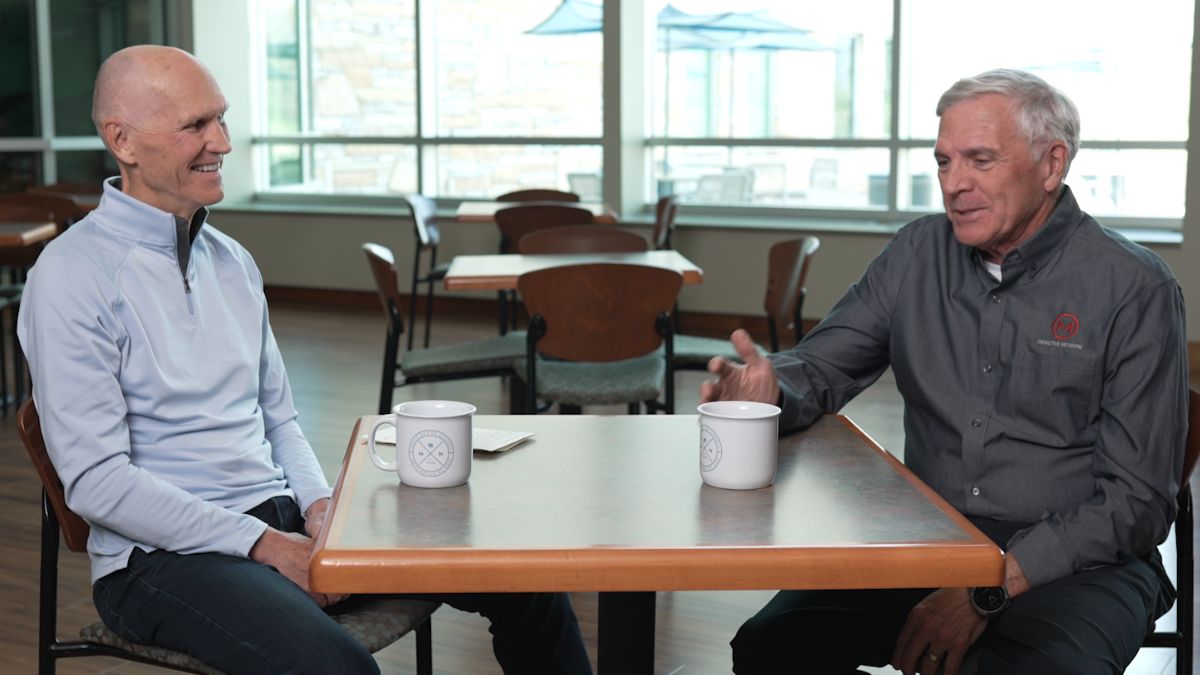
8 Takeaways from Bob Merritt on Engaging Major Donors
At the Global Leadership Summit, a powerful discussion took place between Objective Measure’s founder, Fred Martin, and retired Eagle Brook Pastor, Bob Merritt, on a topic that's crucial for all church leaders: engaging major donors.
At the start of the conversation, Bob inquired about Fred’s experience learning to fly planes, wondering how the lessons there might also apply to church finance and fundraising. Fred instantly jumped to the "Margin of Safety" principle – a cushion that protects you when inevitable difficulties arise. This principle is as applicable in ministry as it is in aviation: with a solid foundation, a clear vision, and a gameplan for responding to emergencies, you can avoid major catastrophes and navigate smaller challenges with confidence.
Fred’s perspective as both a benefactor and financial expert, combined with Bob’s pastoral insight, revealed several other transformative ideas and specific strategies for building meaningful relationships with those who have the capacity to give big. Here are Bob Merritt’s eight key takeaways from the conversation, which will help you effectively develop relationships and navigate conversations with major donors in your own community.
1. Build Trust Through Relationships
Every church has individuals within their community with significant financial resources. As a leader, your first responsibility is to get to know these people personally; build genuine relationships rooted in trust. Donors need to know you’re not just interested in their money but in them as people. Trust is the foundation on which all giving is built.
2. Cast a Compelling Vision
Wealthy individuals are going to give their money somewhere—whether to universities, charitable organizations, or other causes. Your job is to make a compelling case for why your mission matters most. You need to communicate that reaching people for Christ is the greatest cause and one that offers them the best return on investment. Your mission must be clear, inspiring, and focused.
3. Lead by Example
Big donors often give because they believe in the leader. They’re looking at you—evaluating your character, commitment, and capacity to lead. They want to know if you’re in it for the long haul and if you’re leading by example. As a senior pastor, you need to be the first to step up in giving, demonstrating that you’re fully invested in the mission.
4. Simplify and Clarify Your Plan
When approaching major donors, your plan needs to be clear, and the numbers must make sense. Donors appreciate clarity. Rehearse your presentation, use visuals to showcase your architectural plans, and make it easy for them to understand what you’re trying to accomplish and why. Simplicity and consistency will go a long way in earning their trust and support.
5. Appeal to Their Desire for Impact
Donors with significant wealth aren’t interested in funding something that doesn’t make a difference. They want to know their money will have a substantial impact. Align with their desire to contribute to something that truly matters and show them how their gift can be transformative within your community.
6. Present Giving Levels Without Pressure
Bob shared that he rarely asked for a specific amount when engaging potential donors. Instead, he encouraged them to pray about what level might be theirs to give at. This approach respects their autonomy and invites them into a spiritual process, making the decision more meaningful.
7. Prioritize Development
If engaging major donors isn’t a specific part of someone’s job, it’s unlikely to get done effectively. Consider hiring a development person whose sole focus is to build and maintain these critical relationships. A dedicated professional will ensure that your efforts to engage major donors are intentional and consistent.
8. Don’t Panic in the Process
Fundraising can be daunting, and there will be moments when it feels like nothing is working. Bob admitted that he wanted to quit every fundraising campaign his church ever did. But persistence is key. Fundraising can be non-linear and often, gifts come from unexpected sources. Success requires surrendering to the process and trusting that the work is worthwhile.
Engaging major donors is not about perfection; it’s about being intentional, relational, and persistent. Remember, if you don’t ask, they won’t give. Take these insights from Bob Merritt and Fred Martin to heart, and lead your church or organization toward a future of impactful generosity.
